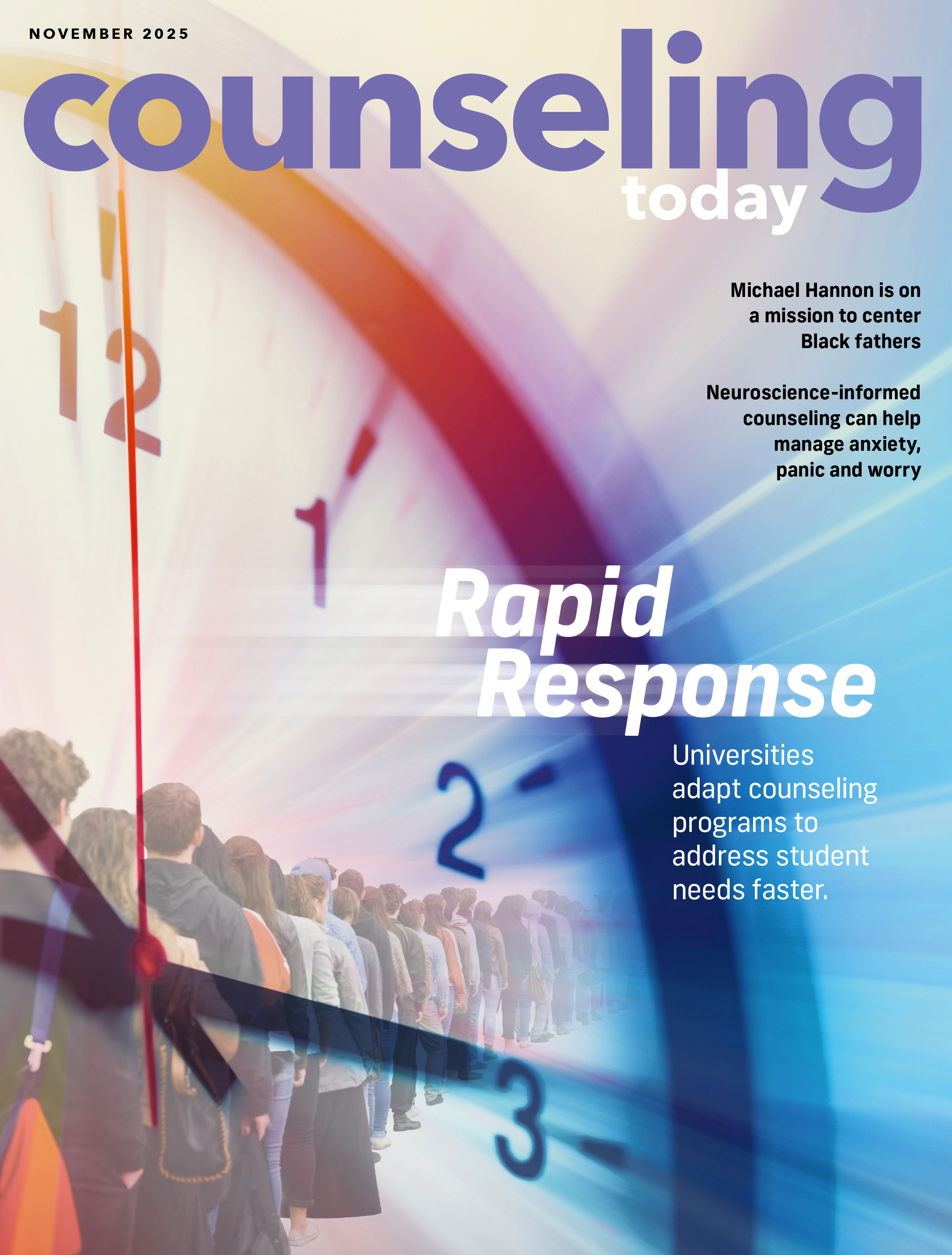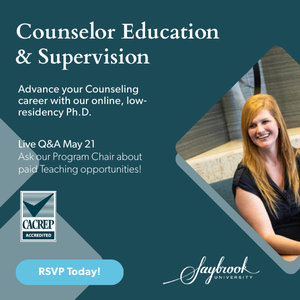Explore Counseling Today Articles
Addressing the Mental Health of Children and Youth
As I shared with you in the July issue, one of my primary presidential initiatives is related to counseling children and youth. Focusing on the mental health of children and youth fills me with hope because when counselors can intervene during this impressionable stage of life, youth have a better chance of entering adulthood without carrying the weight of painful and unresolved issues on their shoulders.
I’m sure many of you are familiar with the Adverse Childhood Experiences (ACE) Questionnaire, which examines how sources of childhood trauma such as abuse and problems in the home such as substance abuse, mental illness and violence are linked to poor health and wellness outcomes in adulthood. (Learn more about ACEs and wellness outcomes in the article “Relationship of childhood abuse and household dysfunction to many of the leading causes of death in adults: The Adverse Childhood Experiences (ACE) Study,” published by the American Journal of Preventive Medicine in 1998.)
The ACE Questionnaire was never meant to be used as a diagnostic tool, but it can give a quick snapshot of the extent of a young client’s trauma. The National Child Traumatic Stress Network — one of the best resources on trauma and children — notes that there are 22 types of trauma that children and youth might experience, including bullying, sexual abuse and intimate partner violence. (For the full list of trauma types, see the report “Beyond the ACE Score: Perspectives from the NCTSN on Child Trauma and Adversity Screening and Impact” published by the National Child Traumatic Stress Network in 2021.)
Studies also show that children have the inspiring ability to be resilient. If children have one caring adult in their lives at home, at school or elsewhere, their ability to be resilient increases. School counselors, mental health counselors in schools, counselors in agencies and counselors in private practice can be those caring adults in the lives of their child clients. Counselors can provide their young clients with safe and nonjudgmental spaces and help dispel beliefs in children and youth that they are dumb, unlovable or worthless or that they are the cause of their parents’ behaviors.
New ACA Certificate
New counselors, however, often do not feel prepared to work effectively with children and youth. They may have received limited coursework in this area, so instead, they learn on the job during practicum and internship experiences and through continuing education. This is where ACA can help! My goal is to bring together experts in evidence-based treatment of children and youth to offer virtual training sessions for all ACA members free of charge between July 2024 and June 2025. ACA members who complete six of the virtual sessions can earn the ACA certificate in evidence-based treatment of children and youth. It is essential that counselors lean into developing, offering and evaluating evidence-based treatment to demonstrate that the treatment is yielding the desired outcomes.
We anticipate that the training will cover a range of topics that children and youth are grappling with, including navigating the positive and potential harm of social media. For example, social media use may lead youth to engage with content that promotes anorexia and body shaming, makes them feel lonely and isolated despite having hundreds of online friends or followers, or lures them into providing sexually explicit photos only to be extorted and publicly embarrassed.
Given the proliferation of recent legislation that disadvantages Black, Indigenous and people of color and LGBTQ+ children and youth, some training sessions will focus specifically on evidence-based treatment for these groups. As counselors, we must be able to intervene effectively with young people through both prevention and intervention efforts.
Showcasing Counselors’ Work
In conjunction with the virtual learning and conference sessions, we will profile in Counseling Today ACA counselors who are doing impactful work with children and youth. This way, we can showcase the exemplary work that our members are doing to help children and youth and their caregivers live more fulfilled and better-adjusted lives. I hope their work will inspire and inform your own work as counselors.
I invite ACA members to join me on this journey of greater knowledge and competence in working with children and youth. I am aware that not all ACA members have a passion for working with children and youth. Please know that ACA will offer several continuing education credits online and at the virtual and in-person conferences to meet your needs too. If there are specific topics that you believe ACA should address, please share your input.
I want to give a shout-out to ACA members who are also members of divisions, state branches and other counseling organizations. Active engagement in our professional organizations is key to strengthening the counseling profession and our professional identity as counselors.
As you do the important work of being a counselor, remember to build in time for relaxation, self-care and connection with loved ones. I considered starting this article by addressing you as “dearest gentle reader” — that gives you a hint about what I’ve been doing to relax and unwind! As always, I thank you for being a counselor, for caring about making the lives of others better and for being part of the ACA community.
DISCLAIMER
Opinions expressed and statements made in this magazine by the article authors or those quoted within articles do not necessarily represent the opinions of the editors or policies of the American Counseling Association.
- Advocacy
- Children & Adolescents
- Counselors
- Professional Development
- Counselors
Search CT Articles
Filter CT Articles
Current Issue
Sign Up for Updates
Keep up to date on the latest in counseling practice. Sign up to receive email updates from Counseling Today.



